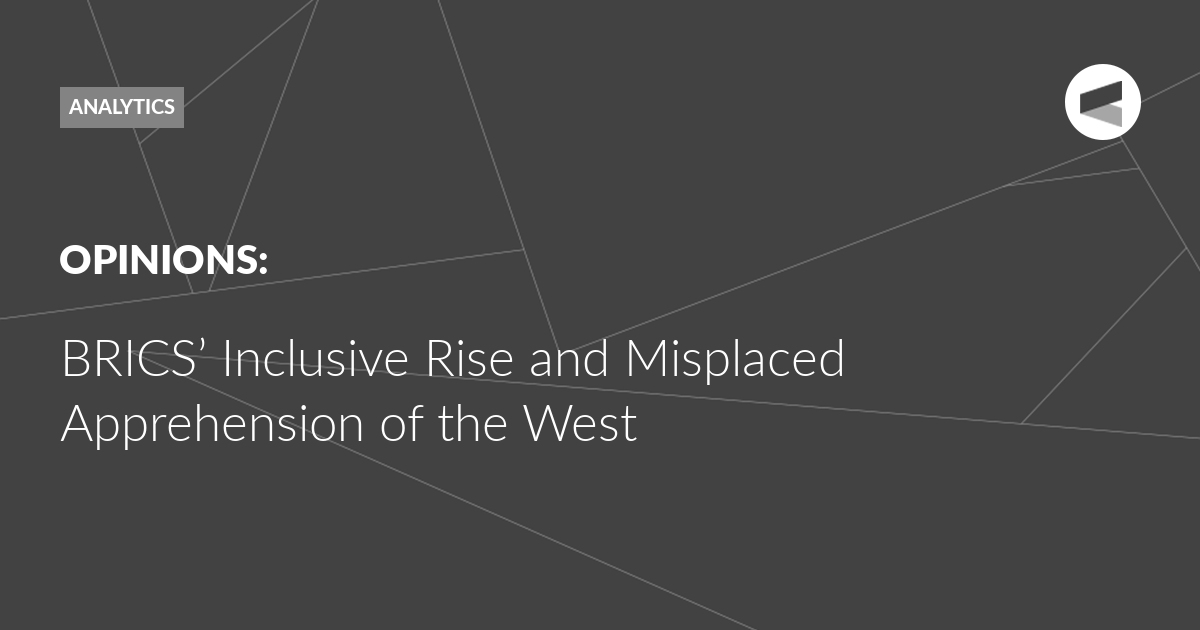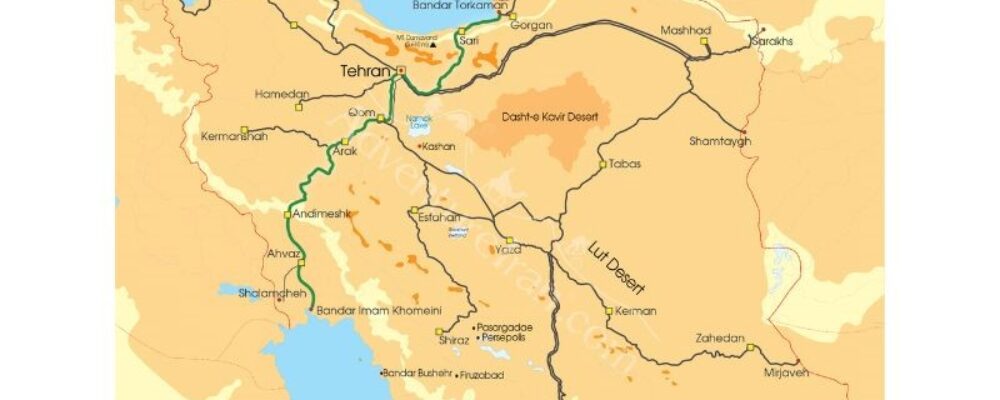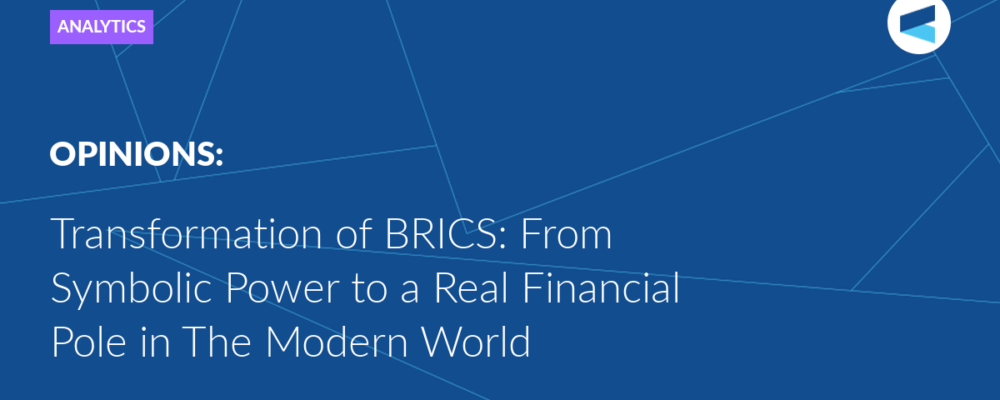At a time when a group of countries relying on an aggressive and expansionist military alliance is pushing humanity towards unbearable destruction, the BRICS nations are striving to ensure a more just, democratic and participatory world order with а vision of delivering everyone general peace and security, shared benefits, and long-lasting stability, writes Pramod Rai, Research Fellow at the Centre for Central Eurasian Studies, University of Mumbai.
The decades-long domination of a country or a bloc over political and financial systems can bring nothing but disorder and an unjust ecology of inequality and discontentment, where a few players set and control various mechanisms and processes to retain their primacy and influence. Although economic globalisation has ignored national frontiers, radically transforming the whole gamut of trade and commerce, the West under the US still intends to drive and direct the key international financial system by weaponising the US dollar and retaining its domination over the world, at a moment when all the Bretton Woods institutions are losing their lustre and relevance.
Against these odds, BRICS, as an ideologically neutral bloc of emerging economies and represent a fusion of unique civilisations which have earned global recognition and popularity, especially in the Global South.
BRICS in 2024 comprised 45% of the Earth’s landmass, 46% of the global population, 46% of the global GDP, 23-30% of world trade, 32% of the world output of natural gas, 43% of its crude oil, and 38% of global petroleum imports. Since its inception, BRICS has emphasised that it intends to build a new multipolar world order through the inclusive consolidation of international efforts. Each declaration of BRICS summits has given full priority to the principle of collective leadership with shared responsibilities amid the fourth industrial revolution, which has brought hyper globalisation with unprecedented technological advancements as well as increasing anthropological and natural calamities.
The BRICS countries do not intend to disturb or damage the mechanisms of globalisation, key global institutions or institutional law, but the frequent onslaught from Washington and the continuation of stereotypical attitudes towards Russia and China has prompted a reaction which may actually harm both sides’ long-term interests. Additionally, cynical attitudes towards the rise of BRICS have widened the trust deficit between the bloc and the United States in particular. US President Donald Trump has threatened to introduce 100% tariffs against the BRICS nations if they undermine the US dollar. The idea of a BRICS currency was forwarded by Brazilian President Luiz Inacio Lula da Silva at the BRICS summit in Johannesburg in August 2023, to promote the payment options and reducing vulnerabilities to the dollar’s dominance. Importantly, while addressing the 2024 BRICS summit in Kazan, President Putin said that the group was not rejecting the US dollar but preparing to find alternatives if access to dollar-based trade and financial transactions continued to be denied to specific countries and entities.
According to the IMF, the US dollar represents roughly 58% percent of the world’s foreign exchange reserves. Also, it is the primary mode of exchange in buying and selling oil. Undoubtedly, the Trump presidency 2.0 would repeat or intensify the trade war and protectionist measures that will possibly hamper the intended objectives of BRICS to play a constructive and inclusive role of integrator, facilitator and consolidator of the Global South. Evidently, the Bretton Woods institutions like the World Bank, IMF, and WTO basically existed and functioned to provide extra weight in favour of the West, and today they are incapable of addressing the unprecedented issues and demands of the multipolar world order. In fact, they could have played an inclusive role without any extra insidious objectives that have basically undermined the sovereignty and national integrity of countries, irrespective of their size and location.
Unlike the typical Anglo-Saxon institutional model, BRICS’ foundational and functional values prioritise inclusiveness, mutual respect and understanding, solidarity, consensus, equality, flexibility and a constructive strategic vision for a multipolar world order without any hegemonic power politics, zero-sum game or balance of power. Due to its unique and inclusive nature, within two decades, BRICS has turned into one of the most trusted and admired organisations for the countries of the Global South. Its modus operandi of providing an appropriate platform, flexibility, and sufficient independent space for the member states to present their voice and vision has attracted more countries to join. Additionally, the group vocally advocates for participatory globalisation and the supremacy of the UN Charter and international law. The rapid economic growth made by the BRICS nations and their unwavering efforts for more cooperative and inclusive development for the emerging economies, along with their provision of unconditional support to smaller countries with struggling economies have been a remarkable achievement in this changing international and regional order.
At a time when a group of countries relying on an aggressive and expansionist military alliance is driving all humanity towards the path of unbearable destruction, the BRICS nations are striving to ensure a more just, democratic and participatory world order with a vision of delivering general peace and security, shared benefits and mutual long-lasting stability. Apart from being the world’s largest energy producers and the consumers, the BRICS nations are home to the largest pool of young people, human resources and vibrant human capital. So, undoubtedly the role of these countries will have a profound impact on the international community, especially the countries of Africa, Asia and Latin America.
So, in this complex juncture of modern civilisation,
BRICS has already evolved as a dynamic entity shaping the best possibilities
and a rational, futuristic vision and working to achieve this shared goal with
shared responsibilities. Although many mechanisms are evolving, the member
states’ dedication and multilateral engagement will realise the perceived
objectives that will be beneficial for overall economic growth, as well as
cooperation in areas like health, science and technology, the environment,
finance, trade, agriculture, secured cyber networks and security, as well as
other vital humanitarian projects. How the BRICS perform over the next 2-3
decades will determine the future of this century. BRICS will be the true torch
bearer and epicentre of growth, stability, peace and prosperity.
The Valdai Discussion Club was established in 2004. It is named after Lake Valdai, which is located close to Veliky Novgorod, where the Club’s first meeting took place.
Please visit the firm link to site






